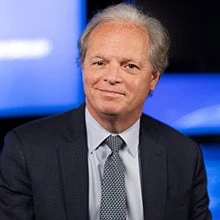 Rows of solar panel at a thermo-solar power plant. Copyright: World Bank.
Rows of solar panel at a thermo-solar power plant. Copyright: World Bank.
This week, as we gather in Nairobi for the Africa Climate Summit which brings together policymakers from across the continent to talk about the climate challenges faced by African countries, I am encouraged by some of the stories of young Africans whose lives are being transformed by solar power – and the potential it has for the continent.
In Kenya, John Masha Ngowa’s barbershop in Tezo operates well into the evening hours thanks to off-grid solar power.
Across the border in Tanzania, aspiring electrical engineer Yohana Mawaka works on a solar energy project at Arusha Technical College -- a growing hub for renewable energy studies. Over the next decades, young Africans like John and Yohana will have an enormous opportunity to drive economic growth and prosperity.
By 2075, nearly one-third of the world's working-age population – 1.9 billion – will be African. This generation of young people can transform their communities and nations as they enter the workforce. Clean energy can make possible the investments, innovations, and new industries that drive jobs and bring inclusive growth and shared prosperity for all.
Today, Sub-Saharan Africa still has ground to cover to realize universal energy access and the potential of its youth. About half of Africans have electricity, while hundreds of millions live beyond national grids. But each year more people gain energy access – often through solar power.
Cheap and plentiful solar power can be the answer to closing the energy gap in Africa. The World Bank estimates that by 2030, solar mini grids could bring high-quality uninterrupted power to 380 million people – or 30% of the population – if governments and industry work together to drive costs down and overcome barriers to financing.
African countries are at the forefront of a clean energy revolution. Solar is reaching communities well beyond the grid in parts of Ethiopia, Niger, Nigeria and other countries. More than 75% of Kenyans now have access to energy, thanks to a major push to accelerate progress. In northern Kenya, the Bank’s Off Grid Solar Access Project for Underserved Communities is bringing solar mini-grids to power schools, health clinics, and homes – and benefitting 1.5 million people.
Between 2018 and 2022, we supported electricity access for about 77 million people and committed $5.7 billion to further direct energy access programs, mainly in Africa.
And we are also significantly ramping up efforts to reach poor and vulnerable populations, particularly in countries characterized by fragility, conflict, and violence. In the Central African Republic, for example, a new solar park with battery storage is being financed by grants and private finance. The first phase of the solar park will bring power to 250,000 people in the capital city helping reduce dependence on costly, polluting diesel.
Notably, the plant is the first of interventions to expand clean energy through utility-scale solar, mini-grids and off-grid solutions for homes. In under a decade, more than half of all people in the country are expected to have access to electricity -- up from just 18% today.
And similar efforts are being made throughout Africa. West African countries, with one of the lowest electrification rates and some of the highest electricity costs in Africa, moved earlier this year to reduce their reliance on oil. Chad, Liberia, Sierra Leone, and Togo signed onto the Regional Emergency Solar Power Intervention Project (RESPITE) to rapidly increase grid-connected renewable energy capacity and strengthen regional integration in participating countries, with Sierra Leone President Julius Maada Bio calling RESPITE, “the beginning of a revolution in energy supply and access.”
With greater access to clean, cheap, and plentiful energy, young people will have more opportunities to further their education, build skills, start businesses, and help others make progress. Such is the goal of Lucas Nyambalya, another student at Arusha Technical College: “My plan is to have a company that creates bigger off-grid energy systems to help the rural population access energy that is clean and reliable.”
This week, as we gather in Nairobi for the Africa Climate Summit to surface climate solutions, I want to think about the concrete actions that are empowering African youth – like John, Yohana, and Lucas – to unlock Africa’s new climate economy.


Join the Conversation